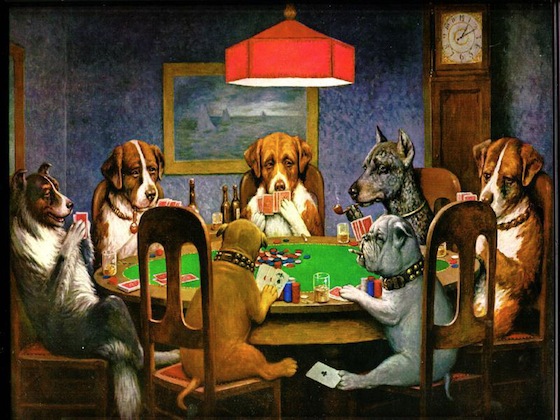If you’re not sure who the sucker is, it’s probably you. That old poker maxim can easily be applied to the game of advertising. For instance, could your ads be stacking the deck against you? There’s one way to find out.
Let’s say your ads don’t play out as expected. Was it the ad guy? Maybe. The product? Possibly. Most often, though, advertising failures are the result of weak offers; ones that push what you wish customers were thinking instead of speaking to what’s really in their head.
Who are you talking to?
What’s in every customer’s head? The customer, of course. How ads run astray of this fact of human nature traces back to the 1940’s when Rosser Reeves first popularized advertising a brand’s Unique Selling Proposition. The once-holy grail of USP focuses on the product, isolating what’s special, different, and unique about it.
Effective advertising today, instead, starts with customer needs, speaks the customer’s words, and leads to a Unique Buying Proposition: a power offer. To qualify as a powerful offer it must couple a product or service the customer cares about with an incentive of greater than expected value.
Make a powerful offer
Sam Walton built Wal-Mart with powerful offers. He’d look at a product and ask, “at what price could we sell a lot of these?” The rest is history.
It’s not hard. Look at your products. Pick one customers already want. Ask the Sam question: “At what price…..?” Then, promote it with guns blazing. Just make sure you have plenty to sell.
Price is one kind of powerful offer. Remember, the key ingredient in a powerful offer is the customer’s perceived value. That’s why it also works for added services, locations, ease-of-use, or whatever lights a fire for your customer.
Unique Buying Propositions lead to powerful offers
- How could we package services so we can sell a lot of them?
- Where could we locate the store to sell to a lot of people?
- How can we make it easier for customers to buy a lot of these?
- And, of course, at what price could we sell a lot of these?
Powerful doesn’t mean cheap
Apple products aren’t inexpensive, but their offers must be powerful. Its smartphone marketshare surpassed Nokia. It’s about to eclipse Exxon-Mobile as the most valuable company on earth. Maybe that’s because Apple asked questions like: “What products would make life easier for a lot of people?” And, “How can we sell a lot of them? Powerful offers produce profitable results.
The answer is standing in front of you
You see customers every day. Watch them. Study them. The better you understand their UBP the better you’re equipped to make a powerful offer. Otherwise, you’re not buying advertising. You’re paying to hear or see your name. Doesn’t that seem a sucker’s bet?

Leave a Reply